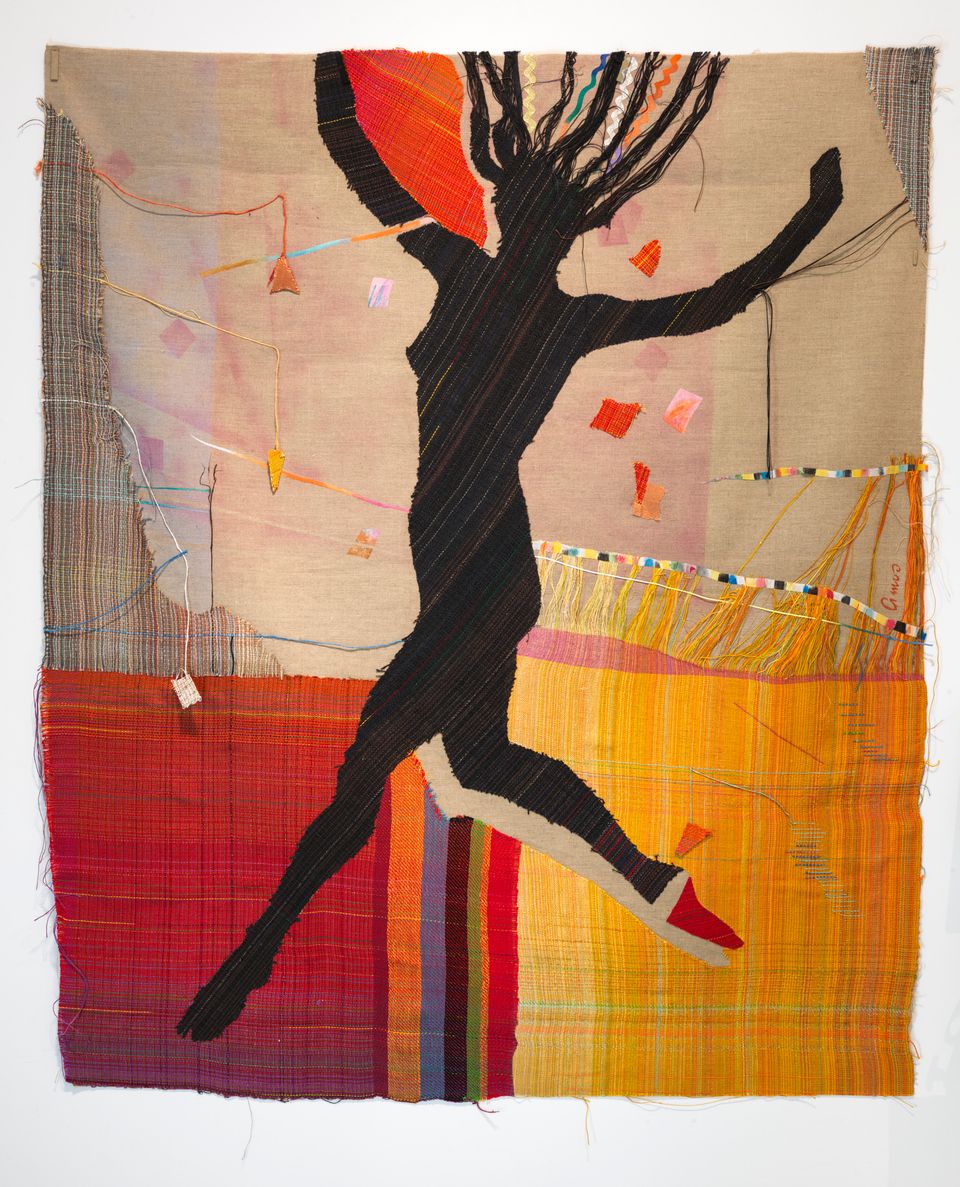Artwork Details
- Title
- Medusa
- Artist
- Date
- 1975
- Location
- Not on view
- Dimensions
- 82 3⁄4 x 20 3⁄8 in. diam. (210.2 x 51.7 cm) irregular
- Credit Line
- Gift of Phyllis Mael
- Mediums Description
- mixed fibers
- Classifications
- Object Number
- 2002.54
Artwork Description
The more time I spend tying these little knots, and concentrating on doing each knot, I'm injecting positive energy. It definitely flows through our hands.
--Neda Al-Hilali
Neda Al-Hilali's artworks often take on personalities of mythic figures. Medusa recalls the serpentine hair of the Greek demigod known for her magical gaze that could turn an enemy to stone, and ward off misfortune and harm. Neda Al-Hilali was born in the Bohemian region of Czechoslovakia (now the Czech Republic) and immigrated to Southern California in 1961. She was among the weavers of her generation, such as Lenore Tawney and Sheila Hicks, who pulled her threads from the loom and twisted, knotted, looped, and braided them into three-dimensional sculptures. As Al-Hilali worked with her hands, she honored the beauty and history of women's fiber work, especially its central role in spiritual traditions, rituals, and myths. She stated in 1979, "I am trying to make accessible the flavor of certain memories past and future."
Verbal Description
A nearly seven-foot-long sculpture made of rope, cordage, and string hangs, suspended from the ceiling. At its largest width, it is twenty inches across, but its shape is irregular and three-dimensional. The object’s texture appears simultaneously rough and sensuously smooth, creating movement and dynamism that lends the sculpture an almost lifelike, organic feel. Its color palette of muted greens, blues, purples, and pinks is natural and earthy, like moss or seaweed, with a glossy sheen that conveys fluidity. The sculpture is made up of thick, sturdy ropes — like those one might use to tie a boat to a dock — that weave and wrap together with thinner threads. It is impossible to tell where one rope begins and another ends. At its top, the sculpture is knotted, narrow, and tight. It gradually widens and narrows again, ending in a taper of tendrils that reach toward the ground like tentacles. Some cling closely to the object’s mass, while others dangle, twisted and curled.














